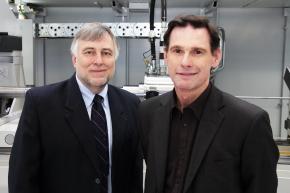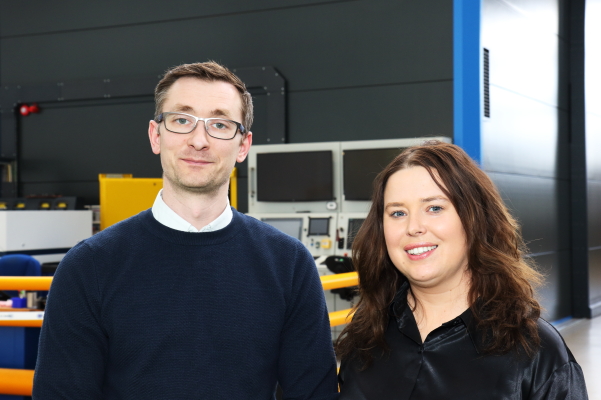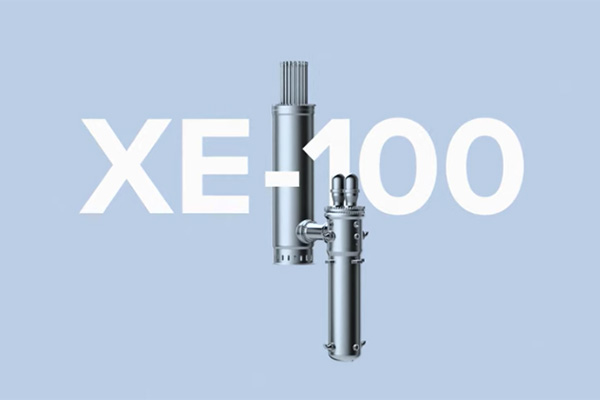The Nuclear AMRC is launching new long-term research into innovative manufacturing techniques to meet the future needs of the UK nuclear industry.
New Nuclear Build and Manufacturing (Nnuman) is a joint project between the Dalton Nuclear Institute at The University of Manchester and the Nuclear AMRC at the University of Sheffield, with £4 million funding from the Engineering and Physical Sciences Research Council (EPSRC). The universities will also invest around £4 million in the project, which will focus on the early development of a range of new manufacturing technologies. The most promising technologies will go on into advanced development at the Nuclear AMRC and National Nuclear Laboratory.
A recent House of Lords’ Science and Technology Committee report – Nuclear Research and Development Capabilities – identified insufficient research and development capacity as a potential threat to the UK’s ability to produce power from nuclear energy.
The Nnuman project will address this concern by developing R&D capabilities to support a robust civil nuclear power supply to meet UK and global energy needs well into the future. The project will focus on the fundamentals of manufacturing for new nuclear build and the next generation of power stations.
Key research areas for Nnuman are:
- Innovative joining technologies, including narrow gap welding and processes for next-generation materials.
- Advanced machining, including robotic machining and laser and cryogenic processes.
- Near-net shape manufacture, including hot isostatic pressing and shape welding.
- Product performance, to prove that all components produced by these new methods will survive a nuclear environment.
 Professor Mike Burke, director of research and technology at the Nuclear AMRC, based at the Dalton Nuclear Institute’s Manufacturing Technology Research Laboratory at The University of Manchester (pictured left), said: “This programme grant is a foresighted investment that will enable the pursuit of new and more efficient manufacturing technologies while maintaining the standards of reliability and safety that are expected in the nuclear industry.
Professor Mike Burke, director of research and technology at the Nuclear AMRC, based at the Dalton Nuclear Institute’s Manufacturing Technology Research Laboratory at The University of Manchester (pictured left), said: “This programme grant is a foresighted investment that will enable the pursuit of new and more efficient manufacturing technologies while maintaining the standards of reliability and safety that are expected in the nuclear industry.
“It also represents an exciting opportunity for our next generation of scientists and engineers to develop state-of-the-art understanding of new processes and product performance.”
Professor Andrew Sherry, Director of the Dalton Nuclear Institute at The University of Manchester (pictured right), said: “Innovation in manufacturing technology for new nuclear build offers the UK a real growth opportunity. We are delighted that Nnuman will now be the research engine that drives this forward.”
Professor Keith Ridgway, programme director of the Nuclear AMRC and Executive Dean of the University of Sheffield Advanced Manufacturing Institute, said: “This funding will help us to look at the longer term manufacturing research needs of the nuclear industry. The work we will do in the Nnuman project will feed directly into the applications-directed work of the Nuclear AMRC.”
Nnuman will act as a research engine for nuclear manufacturing, driving new technologies from the laboratory to production-readiness. The project will showcase the benefits of these new methods to UK manufacturing companies and help them introduce them to their own factories.
Through a programme of multi-disciplinary research at Manchester and Sheffield, the next generation of nuclear manufacturing scientists and engineers will be trained with the highest level of academic and technical support, using world-class facilities and with strong links to industry. Nnuman will help young engineers develop high-level skills to fill new high-quality jobs in a growing nuclear manufacturing sector.
Professor Dave Delpy, EPSRC’s chief executive, said: “Several years ago, EPSRC recognised the importance of maintaining an expertise in nuclear engineering in the UK, and made a strategic investment in postgraduate training through its Keeping the Nuclear Option Open initiative and subsequent funding programmes.
“The New Nuclear Build and Manufacturing programme builds on these earlier investments, and will play a key role in helping develop new manufacturing techniques that will lead to materials that can function more effectively in the hostile operating environments of a nuclear reactor. Having a cutting edge capability in these fields will mean we have a stronger foothold in the manufacturing sector and are able to attract the best students and researchers to the UK.”




